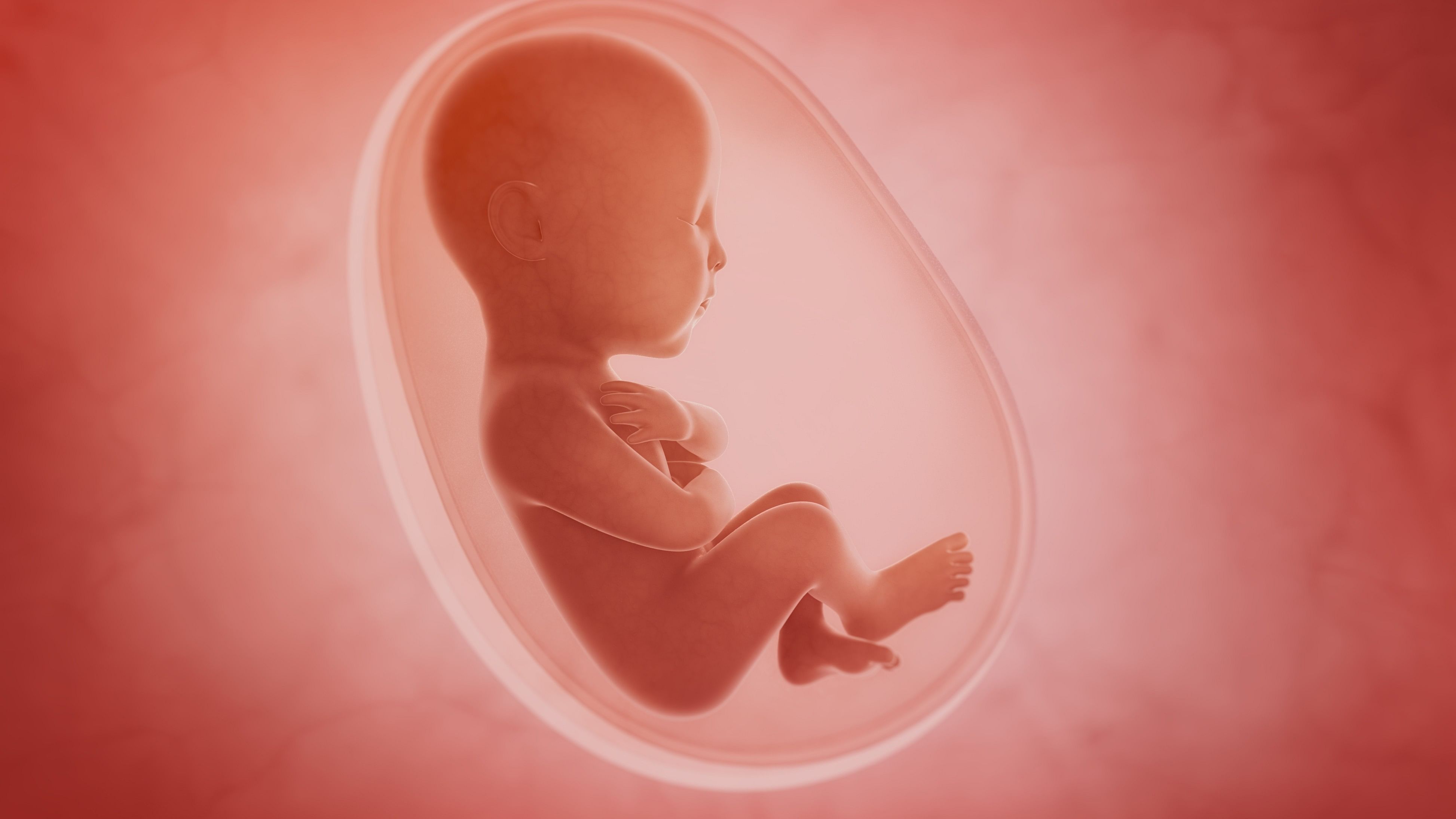
Representative image of a foetus inside the womb.
Credit: iStock Photo
New Delhi: Unusually higher levels of grey matter in foetuses during the first trimester of pregnancy could signal severe autism, marked by lifelong difficulties in social and cognitive skills and possibly not being able to speak, according to a new study.
Researchers said that the biological basis differentiating mild and severe (or profound) autism in children develops in the first weeks and months in their embryo stages, which immediately follows conception.
The most important symptoms of profound and mild autism are experienced in the social affective and communication domains, but to different degrees of severity, according to the international team of researchers led by those at the University of California (UC) San Diego, US.
For the study, they used stem cells derived from blood samples of ten children with autism and of six children without for creating "mini brains" - lab models of the brain's cerebral cortex, resembling those when the children were in their embryonic stage of development.
The cerebral cortex is the outer layer of the brain's surface. Stem cells are special human cells that can be made to develop into different types, including brain cells.
The researchers found that the mini brains, called brain cortical organoids (BCOs), grown from stem cells of children with autism grew larger by about 40 per cent, compared to the models created from stem cells of children without autism.
"The bigger the brain, the better isn't necessarily true," said Alysson Muotri from UC San Diego, and co-corresponding author of the study published in the journal Molecular Autism.
"We found the larger the embryonic BCO size, the more severe the child's later autism social symptoms," said lead researcher Eric Courchesne, Co-Director of the Autism Center of Excellence, UC San Diego.
"Toddlers who had profound autism, which is the most severe type of autism, had the largest BCO overgrowth during embryonic development. Those with mild autism social symptoms had only mild overgrowth," said Courchesne.
The researchers also found that more overgrowth in a 'mini brain', the more overgrowth in the social regions in the brain of a child with severe autism, and the lower the child's attention to social environment - the most important symptom of profound autism.
Further, the lab models of children with severe autism grew "too fast" and "too big", the authors said.
"The differences in the embryonic origins of these two subtypes of autism (profound and mild) urgently need to be understood," said Courchesne.
"That understanding can only come from studies like ours, which reveals the underlying neurobiological causes of their social challenges and when they begin," said Courchesne.